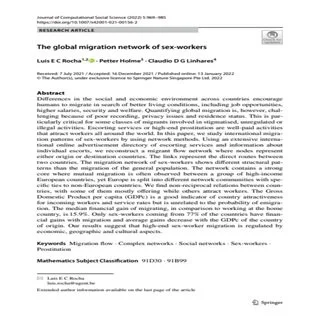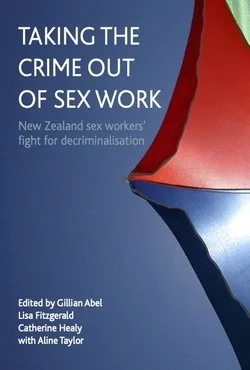By Luis E C Rocha1 · Petter Holme · Claudio D G Linhares
Differences in the social and economic environment across countries encourage humans to migrate in search of better living conditions, including job opportunities, higher salaries, security and welfare. Quantifying global migration is, however, challenging because of poor recording, privacy issues and residence status. This is particularly critical for some classes of migrants involved in stigmatised, unregulated or illegal activities. Escorting services or high-end prostitution are well-paid activities that attract workers all around the world. In this paper, we study international migration patterns of sex-workers by using network methods. Using an extensive international online advertisement directory of escorting services and information about individual escorts, we reconstruct a migrant fow network where nodes represent either origin or destination countries. The links represent the direct routes between two countries. The migration network of sex-workers shows diferent structural patterns than the migration of the general population. The network contains a strong core where mutual migration is often observed between a group of high-income European countries, yet Europe is split into diferent network communities with specifc ties to non-European countries. We find non-reciprocal relations between countries, with some of them mostly ofering while others attract workers. The Gross Domestic Product per capita (GDPc) is a good indicator of country attractiveness for incoming workers and service rates but is unrelated to the probability of emigration. The median fnancial gain of migrating, in comparison to working at the home country, is 15.9%. Only sex-workers coming from 77% of the countries have financial gains with migration and average gains decrease with the GDPc of the country of origin. Our results suggest that high-end sex-worker migration is regulated by economic, geographic and cultural aspects.
Journal of Computational Social Science (2022) 5:969–985














